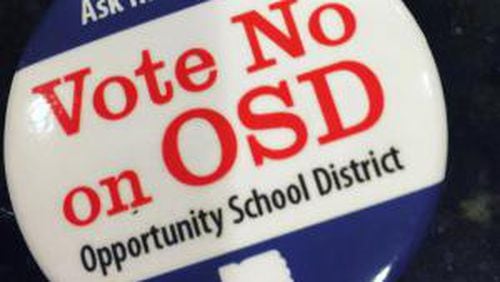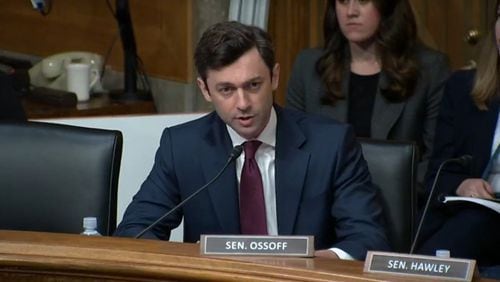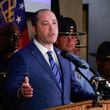Last week, legislation was introduced to provide a means for some state intervention in low-performing schools. It differs from the constitutional amendment voters rejected that would have created a statewide Opportunity School District to take over such schools, but there are similarities.
Here is a reaction to the new proposal from Louis Elrod. He is Better Georgia’s political director and managed the Keep Georgia Schools Local campaign against the OSD plan. Elrod contends the governor's plan B has too many similarities to the OSD, which was soundly rebuffed by voters in November.
By Louis Elrod
Last Election Day, Georgia voters rejected Gov. Deal's first school takeover push by a vote of roughly 60 to 40 percent. Teachers, parents and public education supporters from all political, socioeconomic and geographic backgrounds banded together to tell the governor that we will not be silenced by Amendment 1.
The school takeover defeat should have shown the governor and our elected officials that Georgians will not stand for a political power grab that would hand our schools over to unelected political appointees who aren’t accountable to parents.
But a little more than three months later, Gov. Deal's school takeover is back, this time, as a bill fast-tracked in the Georgia Legislature . The governor is again ignoring Georgia parents and teachers, which is one of the huge reasons his first school takeover plan failed.
This arrogance and singlemindedness is not a recipe for good governance.
The governor's school takeover 2.0 proposal is essentially the same concept already defeated by voters with only minor window dressing. It would create even more bureaucracy.
If, as we suspect, the governor goes after the same schools that he previously defined as “failing,” it would disproportionately target poor students and students of color. But it’s difficult to even know which schools will be targeted because the bill uses the undefined term “unacceptable rating” and gives the political appointee exclusive power to decide how that term is applied.
Another huge problem with the bill is that there’s still no additional funding for teacher raises, school materials or reinstating the music and art programs that have been slashed. And in some ways, the school takeover 2.0 is even worse than the original measure.
This time around, there is no limit to the number of schools that can be taken over or managed at one time by the politically appointed education czar. It provides additional avenues for the state to remove local school board members, the people elected by the voters in the communities they serve.
Unfortunately, there is no path for voters to remove the new education czar should he or she prove to be ineffective. And while the legislation only mentions turning struggling schools over to “nonprofit” entities, it does not restrict out-of-state, for-profit corporations from sticking their hands in the taxpayer cookie jar.
Deal and his supporters may argue that this takeover is different because they’re bringing teachers to the table in an “advisory” role. But the advisory council can only suggest potential candidates for the education czar position or comment on the qualifications of a potential candidate. The school takeover 2.0 bill doesn’t give teachers any real authority to actually shape the legislation or push back in any concrete way against what they perceive as bad policy.
Essentially, the governor is giving teachers a front-row seat to the education train wreck he would create with this legislation.
On Nov. 8, Georgia voters of all political stripes sent a message to lawmakers that public education is more important than party affiliation. The teachers, parents and community leaders that comprise the public education constituency are a singular force to be reckoned with. We know that there are gains to be made with Georgia’s public schools, but changes should be implemented based on real input from the parents and teachers, not through a one-size-fits-all approach forced upon schools by state politicians and appointees.
If Gov. Deal and our lawmakers are serious about reform, then they should step up to the plate by allowing the flexibility given to local districts through the newly enforced Flexibility Act to play out. Those contracts already provide clear performance requirements and include accountability measurements.
The state Legislature now has one role, to fully fund the local school districts as the contracts are performed. We do not need the Legislature to create another new, unfunded state level bureaucracy.
We urge lawmakers to listen to Georgia voters and stand up for students, parents and teachers by rejecting this political power grab. If lawmakers refuse to listen to the growing, powerful public education constituency, they do so at their own political peril. The next Election Day is right around the corner.
About the Author







